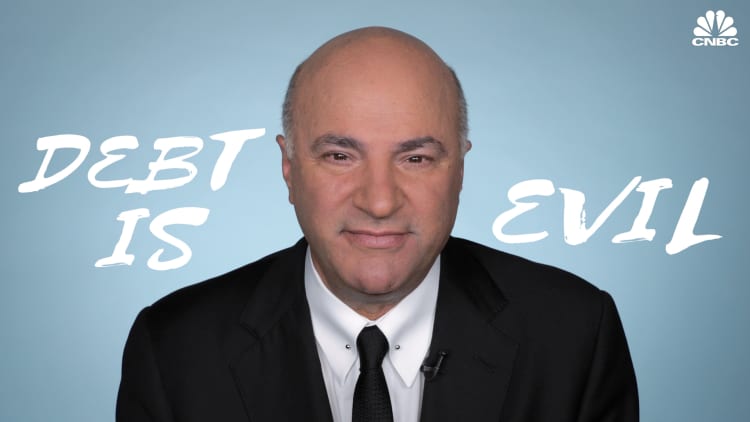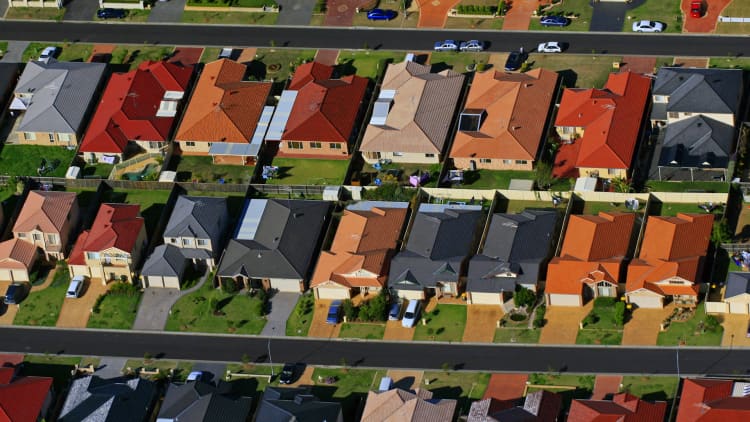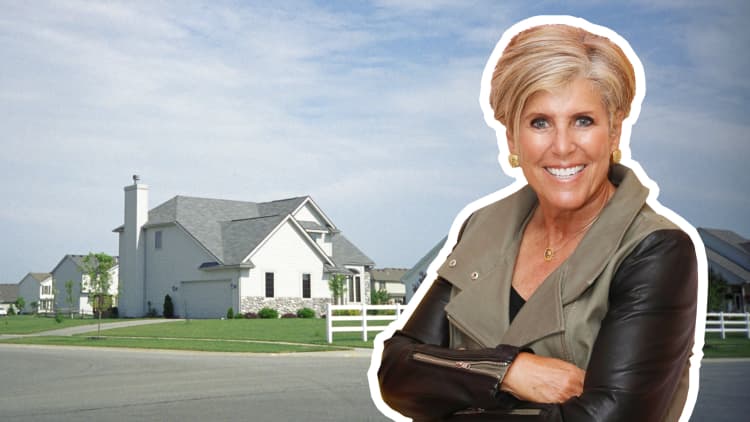Should you pay off your mortgage early? These experts say yes.
Star of ABC's "Shark Tank" Kevin O'Leary, the bestselling author of "The Automatic Millionaire" David Bach, and the bestselling author of "Women and Money" Suze Orman all agree that you should make paying off your mortgage a priority.
Here's why.
Suze Orman: 'Pay off that mortgage as soon as you possibly can'
Orman recommends that you aim to be mortgage-free by the time you retire. Better yet, pay it off even earlier.
"If you're going to buy a house, be responsible with it. And if you're going to stay living it that house for the rest of your life, pay off that mortgage as soon as you possibly can," she tells CNBC Make It.
Everything you owe, including your home, costs you money, and that can affect not just your bottom line but also your mental health. "Debt is bondage," she says. "You will never, ever, ever have financial freedom if you have debt."
Eliminating your mortgage payment is also a useful way to maximize your retirement savings, Orman says. Not only will you be able to put more away before you retire, but you'll have one less bill to pay in your golden years.
Kevin O'Leary: A mortgage is 'not always a good investment'
O'Leary advises you to think long and hard before taking on a mortgage at all.
"It's not always a good investment and, in my opinion, most people in their 20s, or even 30s, have no reason to be taking on that kind of debt," he tells CNBC Make It. "Homes don't always gain as much value as you expect — at least not anymore, and at least not quickly."

If you do decide to buy a home, he says to pay it off as quickly as you can. And if you already have a mortgage, O'Leary argues paying it off should take a higher financial priority than using extra cash to invest in things like stocks or bonds.
"There's never an incentive to stay in debt," O'Leary says. "Life is unpredictable. What happens if you're laid off or incur unexpected expenses elsewhere? Your once-manageable mortgage is suddenly going to seem not-so-manageable."
David Bach: Pay it off 'early'
Bach calls "buying a home is the escalator to wealth in America." And, he suggests, if you want to retire early, pay off your mortgage early, too. "I can tell you, having been a financial advisor at Morgan Stanley, my clients who retired at 50 years old, the secret was: They had paid their mortgage off early," he tells CNBC Make It.
To make that happen, Bach advises taking out a 30-year mortgage with the intention of eliminating it in 15 to 20 years. Then, increase your payments by 10 percent and let your bank know that you want the extra money applied to the principal, not the interest.
"If you keep this up, you'll wind up paying off your 30-year mortgage in about 25 years," he writes in "Smart Couples Finish Rich." "Increase your monthly payment by 20 percent, and you'll have that mortgage retired in about 22 years."
Even if you don't plan to retire in your 50s, Bach says, paying off your mortgage early can save you tens or even hundreds of thousands of dollars in interest.
Don't forget your other goals
Paying off your mortgage shouldn't be your only financial goal. Orman notes that you should focus on your mortgage after you've contributed enough to your 401(k) to receive any employer match or maxed out your Roth IRA.
You should also have an emergency fund with three-to-six months' worth of living expenses saved up. The future is unpredictable and owning your home outright isn't worth going into debt for if something else arises.
Finally, make sure eliminating your mortgage makes sense given your lifestyle and other priorities. What level of risk are you willing to take on? What do your other assets look like? Does it make sense tax-wise? Read up on the potential drawbacks before adopting a new financial plan.
Like this story? Subscribe to CNBC Make It on YouTube!
Don't miss: Suze Orman: Here's how much money you should be saving for retirement




